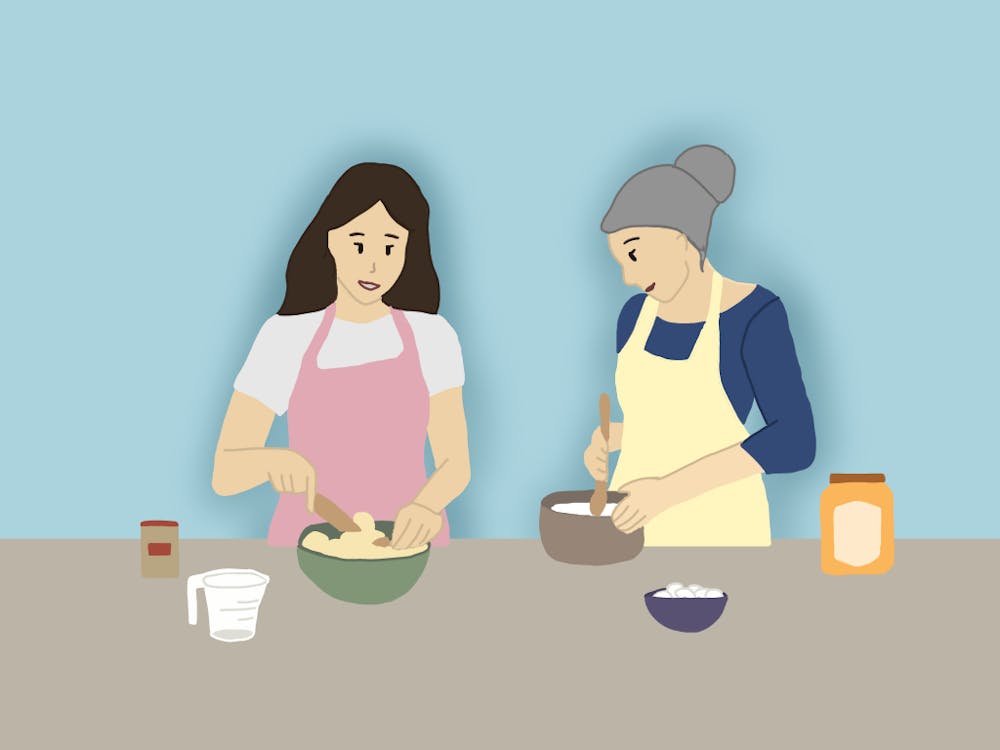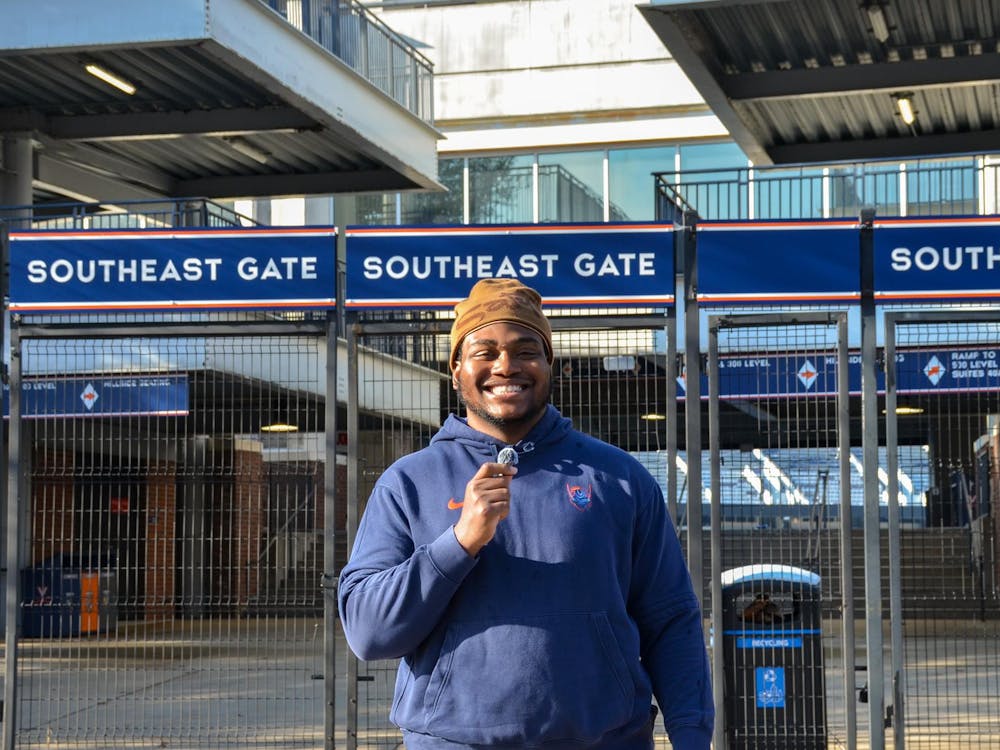Students and faculty faced a number of traumatic events this academic year, repeatedly putting the University at the forefront of national news. Shortly after school started, the community faced the disappearance of second-year College student Hannah Graham. A couple months later, Rolling Stone magazine published a graphic story titled “A Rape on Campus” which detailed an alleged gang rape by a University fraternity and called the University’s overall social and administrative culture into question. By the close of the fall semester, the community had been shaken by four student deaths. After a fresh start in the spring, third-year College student Martese Johnson sustained a head injury while being arrested by ABC officers on the Corner, sparking student protests and more national attention.
While students and faculty experienced the same events, the degree to which they were emotionally and intellectually engaged varied. Some students continued to fulfill their responsibilities, while others found daily tasks challenging. Both parents and students expressed concerns about safety, and individuals inside and outside the University questioned the administration. However, the year’s obstacles also offered new opportunities for dialogue in the classroom and new ways for students to support one another.
Impact on everyday life
Some University students, aside from their presence on Grounds, were not directly impacted by this year’s events. First-year College student Ady Sethi said the events did not interfere with his ability to complete school work.
However, for student leaders and friends of Martese Johnson and Hannah Graham, such as fourth-year College student Joy Omenyi, the outgoing President of Black Student Alliance, and third-year College student Hallie Pence, the vice president of skiing for the Virginia Alpine Ski and Snowboard Team, it was difficult to fulfill daily responsibilities in the midst of trauma.
“It’s a lot to have to consume,” Omenyi said. “You fear every time your email pings whether it’s a new incident. Every time you get an email from President Sullivan, you don’t know what the next ordeal is.”
Omenyi said she did not sleep after Johnson was arrested, and she struggled to escape thoughts of what was happening outside the classroom.
“I think [the arrest] affected everyone’s school work in the sense that you can’t forget what’s going on or what you read this morning,” Omenyi said. “You can’t forget all the texts you got in class. You can’t forget any of that while trying to find the derivative of an equation — that is still in the back of your mind.”
In the midst of these distractions, work and responsibilities did not disappear. While professors checked in with students who were deeply affected, students continued to move forward.
“I think my friend group, in particular, learned the value of resiliency,” Pence said. “We had to keep going every day, regardless of whether it was a good day or a bad day.”
Many students who were not directly involved in responding to the incidents of the year still found themselves deeply affected. Second-year College student Mary Collin said her grades suffered this semester as a result of the year’s challenges.
“Largely, I tried to block it out and I did a really good job of that through first semester in trying not to let it affect schoolwork and my relationship with friends and how I go out and be social,” Collin said. “Then, second semester when I got back, it all caught up with me when I was out and saw something ugly and after that, honestly, it was really tough — even though nothing particularly bad was happening.”
Concerns about safety
As the year progressed, many parents expressed fear about the safety of their children.
“I think it was traumatizing — not just as a student, but as a female student — because your mom is calling you everyday like, ‘Don’t go outside!’” Omenyi said. “We [didn’t] know where [was] safe for us. Can we stay at home? Can we go to the Corner? Can we go downtown? We had absolutely no idea.”
Although some students did not feel like their personal safety was threatened, they felt an increased responsibility for the safety of their peers.
“I don’t feel in danger in anyway, but I feel like I understand how it might affect others… and because of that, I feel like I should be there to support them,” Sethi said.
Students also learned the importance of looking out for one another.
“[I think we learned to] look out for each other more,” first-year Engineering student Stephen Pancrazio said. “If somebody [has] to be walked home, you can’t let them take care of themselves — you’ve got to actually be there for them, you’ve got to make sure they get home safe.”
Perceptions of administration, the University
As the University administration took action to address different issues, some students, like fourth-year Engineering student Daniel Harelson — a fraternity member — expressed dissatisfaction.
“I was upset that the administration decided to react so quickly to point fingers at fraternities [after Rolling Stone],” Harelson said. “I think there is a problem — I don’t think it’s unique to U.Va, I don’t think it’s unique to fraternities. The fact that sororities and fraternities were shut down so quickly just kind of pigeonholed the investigation and the blame in people’s eyes. The Rolling Stone article affected the school practically in that the IFC had to institute all these different changes when they redid their [Fraternal Organization Agreements]. Those are actual, physical differences that we see at our parties.”
For Pence, though, the administration effectively provided support throughout the Graham investigation and in its wake.
“Administration was just really phenomenal,” Pence said. “We’re really thankful for the deans [who] were there for us and continue to be there for us.”
While students were confronted with outsiders’ negative reactions to the University’s events, some, like Collin, continued to feel unwavering loyalty. Collin said her positive experiences last year contrast starkly with this year’s challenges, but her admiration for the University remains.
“I don’t see [the school] any differently,” Collin said. “I still love it just as much.”
New opportunities for dialogue
Both inside and outside the classroom, students were given the opportunity to discuss issues they might not have discussed otherwise.
“These types of serious events provide people [with] an opportunity to express how they feel more seriously,” Pancrazio said. “[As opposed to] just joking around starting to know your friends...you can actually get to know somebody on a deeper level.”
Whether or not events happening outside of the classroom were addressed in an academic setting varied by the professor and the course topic. For professors, such as Women Gender Studies Prof. Corrine Field, the classroom acted as a forum for discussion.
“As a historian, I see the ways in which issues today, playing out on campus, are deeply structured by the history that we study in my class… so giving students a forum where they can connect that history to the struggles they are facing today, I think, has been very productive and it’s helped people see why this history still matters,” Field said.
Other professors chose not to discuss what was happening outside the classroom, and others still decided to take a middle ground.
“We never had [a] discussion [on these events], but normally [professors took] a moment to talk about it and reassure us they were here for us,” Collin said.
Some discussions allowed students the opportunity to understand different perspectives, Field said.
“[I noticed] a very mature, thoughtful ability [of students] to talk to each other about quite difficult topics and really wrestle with ways that students disagree and understand their experiences here differently, but, at least in my classes, were willing to hear each other out and learn from each other,” Field said. “And I learned a lot from them as well.”
Finding strength, camaraderie
Students faced with the challenges and traumas this year has presented found new ways to act as support networks for those who were deeply impacted.
“We could really feel how much the community cared and was affected by everything,” Pence said. “They were confused and upset by everything that happened. It felt like the community at large was going through it with us. People were really wonderful about reaching out and sending care packages over to the house for us. Secret societies would leave notes and have dinners for us.”
Although students differed in their experiences of the past year, Omenyi said the community came together in a way she had never seen before.
“I think one thing that kept me going and one thing that kept a lot of students going was that camaraderie you found in other students, that ability to be able to reach out to your fellow student because we were all going through it at the same time — maybe different levels of it, but I think that’s something that at least kept me going, especially with Martese,” Omenyi said. “Just the way that the community came together in ways that I have never seen in my four years.”
American Studies Prof. Lisa Goff said this year has been a pivotal one for the University as a whole.
"When a crisis happens — or two or three — we see difficult truths that have been there all along: murder, sexual violence, police brutality,” Goff said in an email. “We either look away or face it. I think this year might have been a turning point for U.Va., from looking away to facing crises."






